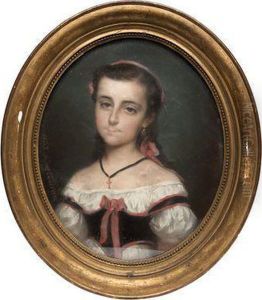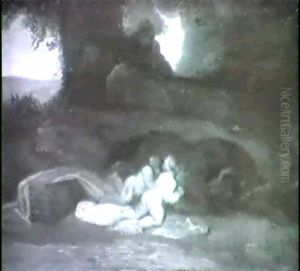Hugues Fourau Paintings
Hugues Fourau was a 19th-century French painter and printmaker, born in 1813 and passing away in 1873. His work is often characterized by its detailed depiction of landscapes, cityscapes, and historical moments, aligning with the Romantic movement that was prevalent during his lifetime. Fourau's contributions to art are marked by his ability to capture the essence of his subjects with a remarkable fidelity to nature, alongside a nuanced use of light and shadow that lends his scenes a dramatic and often emotive quality.
Throughout his career, Fourau exhibited at various prestigious venues, including the Paris Salon, an annual art event in France that was crucial for artists wishing to gain recognition and patronage. His depictions of French cities and countryside, as well as his occasional forays into historical and mythological subjects, reflect the Romantic era's fascination with nature, emotion, and the grandeur of the past.
Despite his talent and the quality of his work, Hugues Fourau remains a somewhat lesser-known figure in the pantheon of 19th-century French artists, overshadowed by contemporaries such as Eugène Delacroix and Théodore Géricault. Nevertheless, his paintings and prints continue to be appreciated by art historians and collectors for their technical skill and emotional depth. Fourau's legacy is preserved in various collections and museums in France and around the world, offering insight into the rich tapestry of French Romantic art.

